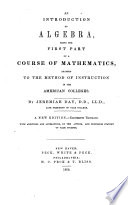 | Jeremiah Day - Algebra - 1859 - 422 pages
...four different quantities, the first term of the series, the common difference, the number of terms, and the sum of the terms ; any three of which being given, tht fourth may be found. For, by reducing the equation, 2s— dn3+dn 2. a= -- — - . the first term.... | |
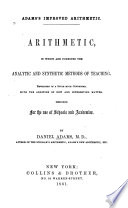 | Daniel Adams - Arithmetic - 1861 - 452 pages
...extremes, and the other terms are called the means. There are five things in an arithmetical progression, any three of which being given, the other two may be found : 1st. Theirs* term. 2d. The last term. 3d. The number of terms. 4th. The common difference. 5th. The... | |
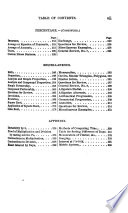 | George Augustus Walton - Arithmetic - 1864 - 376 pages
...to be considered ; viz., the First Term, the Last Term, the Number of Terms, the Common Difference, and the Sum of the Terms ; any three of which being given, the other two may be found. This gives rise to twenty distinct cases, a few of the more important of which will be here presented.... | |
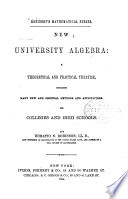 | Horatio Nelson Robinson - Algebra - 1864 - 444 pages
...APPLICATION OF THE FOKMULAS. 364. The two primitive equations, contain the five quantities, a, r, l, n, S, any three of which being ~given, the other two may be found; for, by substitution of the given values, the result will always be two equations involving but two... | |
 | Jeremiah Day - 1866 - 434 pages
...four different quantities, the first term of the series, the common difference, the number of terms, and the sum of the terms ; any three of which being given, thi fourth may be found. For, by reducing the equation, we hav« 2s-dn3+dn 2. a= --- - -- > the first... | |
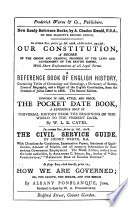 | Francis Walkingame - 1868 - 154 pages
...term. 2. The last term. 3. The number of terms. 4. The equal difference of the terms. 5. The sum of all the terms. Any three of which being given, the other two may be found. The first and last terms and the number of terms given, to find the sum of all the terms. RULE. —... | |
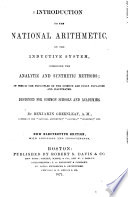 | Benjamin Greenleaf - Arithmetic - 1871 - 350 pages
...a series? The means? When is a series ascending? When descending ? What five things are mentioned, any three of which being given, the other two may be found ? If the last term had been given and the first required, the process would evidently have been by... | |
 | Horatio Nelson Robinson - Algebra - 1872 - 436 pages
...two primitive equations, l = ar*~l , S—— — 5—, contain the five quantities, a, r, l, n, S, any three of which being given, the other two may be found; for, by substitution of the given values, the result will always be two equations involving but two... | |
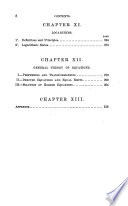 | William Guy Peck - Algebra - 1875 - 348 pages
...in each case is 4. 175. In any geometrical progression, there are five quantities to be considered, any three of which being given, the other two may be found. These quantities are, the first term, denoted by . . . .a, " last term, denoted by ..../, " number... | |
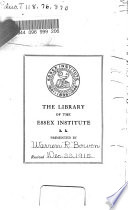 | George Augustus Walton - 1876 - 358 pages
...to be considered ; viz., the First Term, the Last Term, the Number of Terms, the Common Difference, and the Sum of the Terms ; any three of which being given, the other two may be found. This gives rise to twenty distinct cases, a few of the more important of which will be here presented.... | |
| |